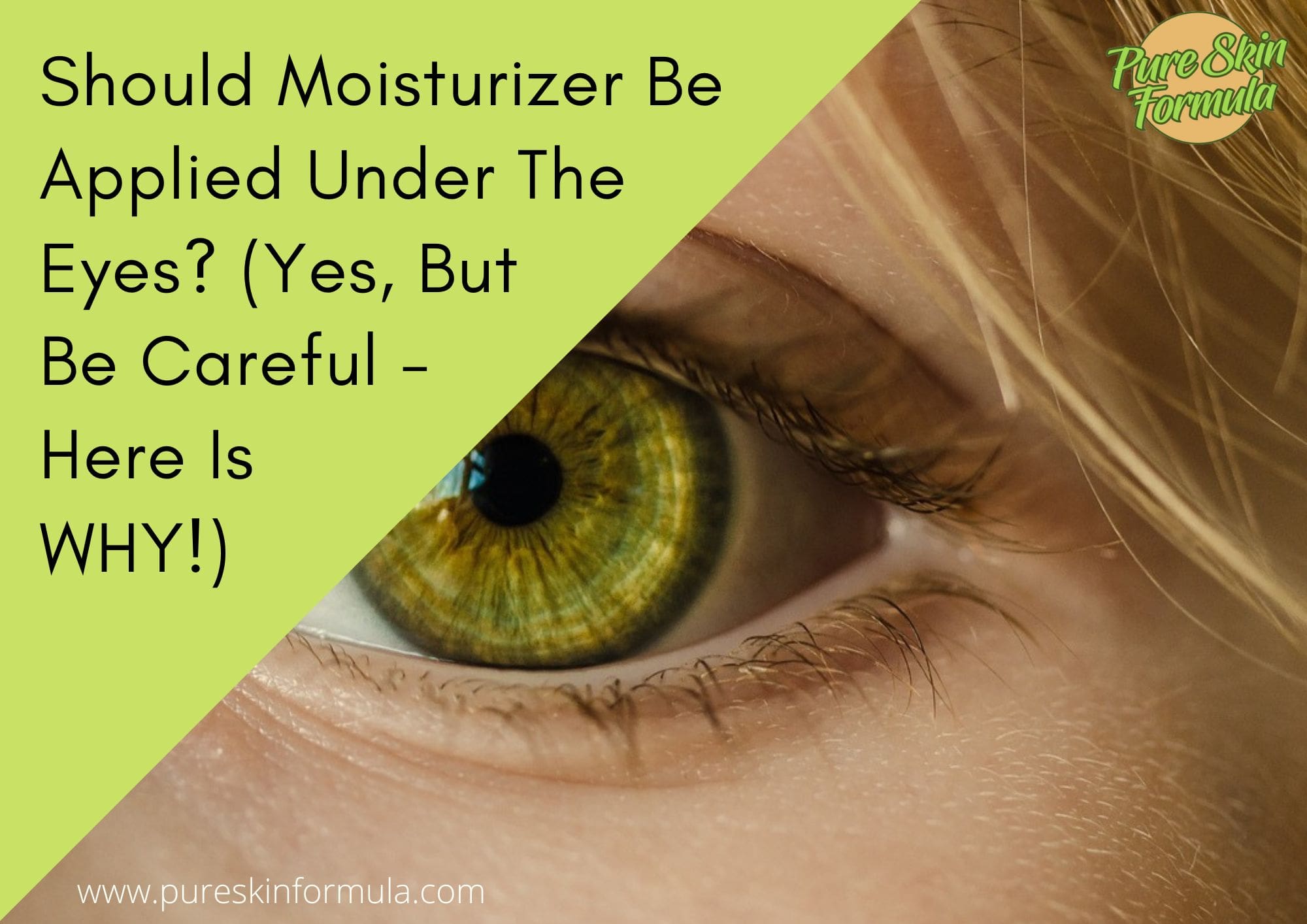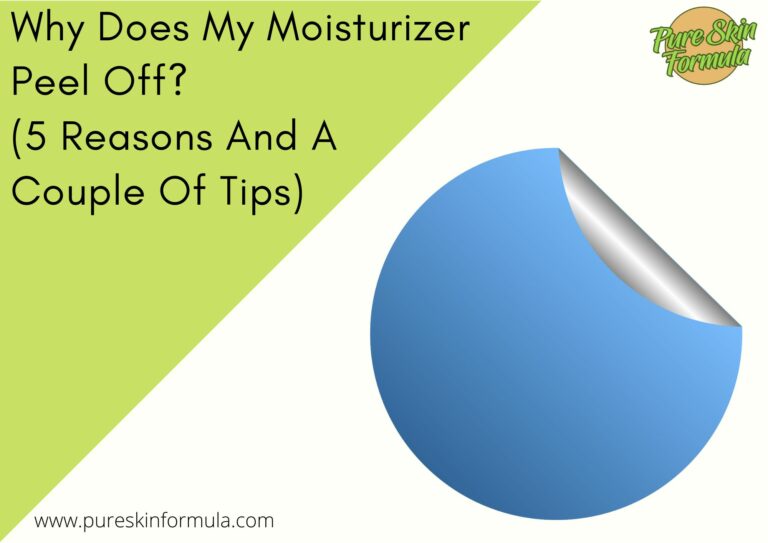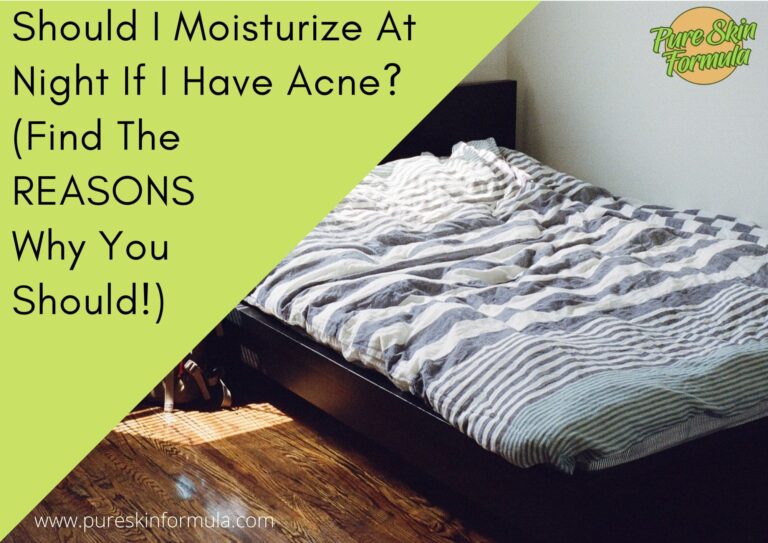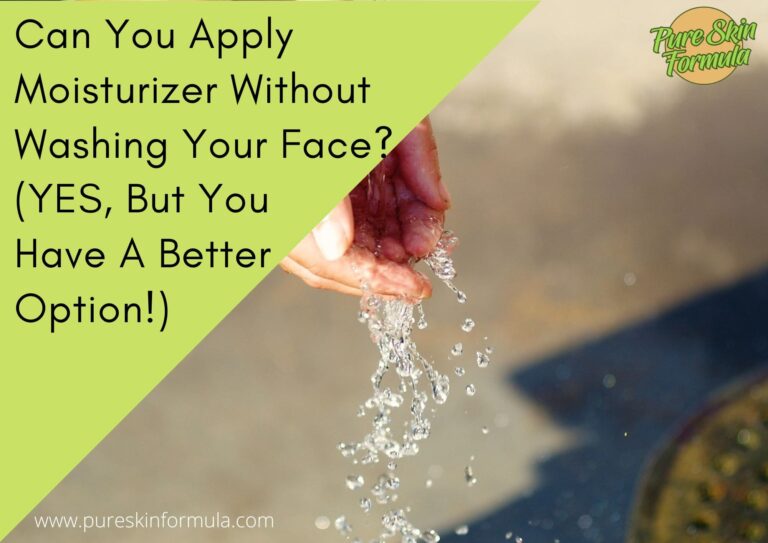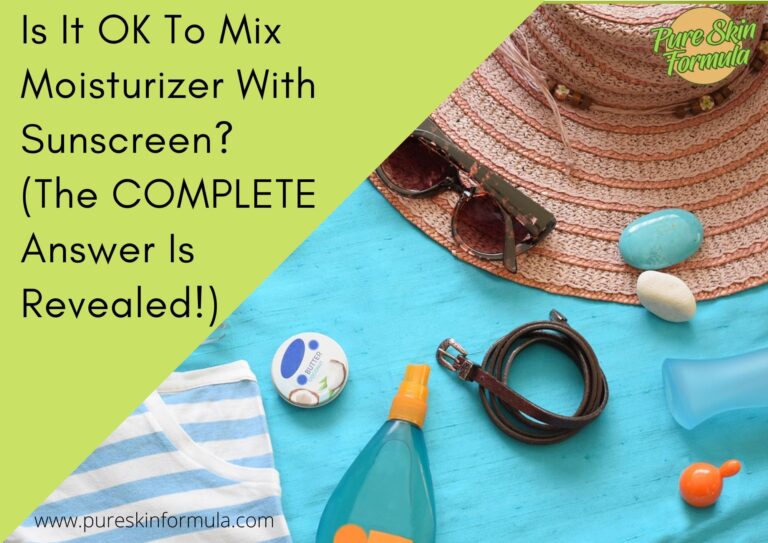It’s never too early to look after the skin around the eyes. It is the most delicate face area as it is fragile. That is why taking care of it and having the right approach to beauty and health is essential.
Here comes the question of using moisturizing products and their appropriateness for our skin around the eyes.
Should Moisturizer Be Applied Under The Eyes?
Yes, it should. But your moisturizer must be caring and as delicate as the skin under the eyes is. Find one appropriate for your skin type containing ingredients which protect you against fine lines, dark circles and puffiness.
If unsure what to do, you can always use an eye cream.
Let’s discuss the best way to moisturise and maintain your eye area.
Five facts about the skin around the eyes
- The skin under the eyes is the thinnest on the body, around 0.5 millimeters thick. This makes it more susceptible to damage from UV radiation, environmental pollutants, and the aging process.
- The skin under the eyes contains fewer oil glands than other areas of the face, which can lead to dryness and wrinkles.
- The skin under the eyes is supported by a network of collagen and elastin fibers, which provide elasticity and structure to the skin. As we age, these fibers break down, and the skin can become less firm and more prone to wrinkles and sagging.
- The skin under the eyes has more blood vessels than other facial areas. This can make the area more prone to dark circles and puffiness, especially in people with allergies or sleep disorders.
- The skin under the eyes is susceptible and can become easily irritated by harsh skincare products, rubbing, or scratching. This can lead to inflammation, redness, and even skin damage.
Of course, getting enough sleep, staying hydrated, avoiding smoking, and excessive alcohol consumption can all impact the health and appearance of the skin under the eyes.
How to get rid of the dark circles under your eyes?
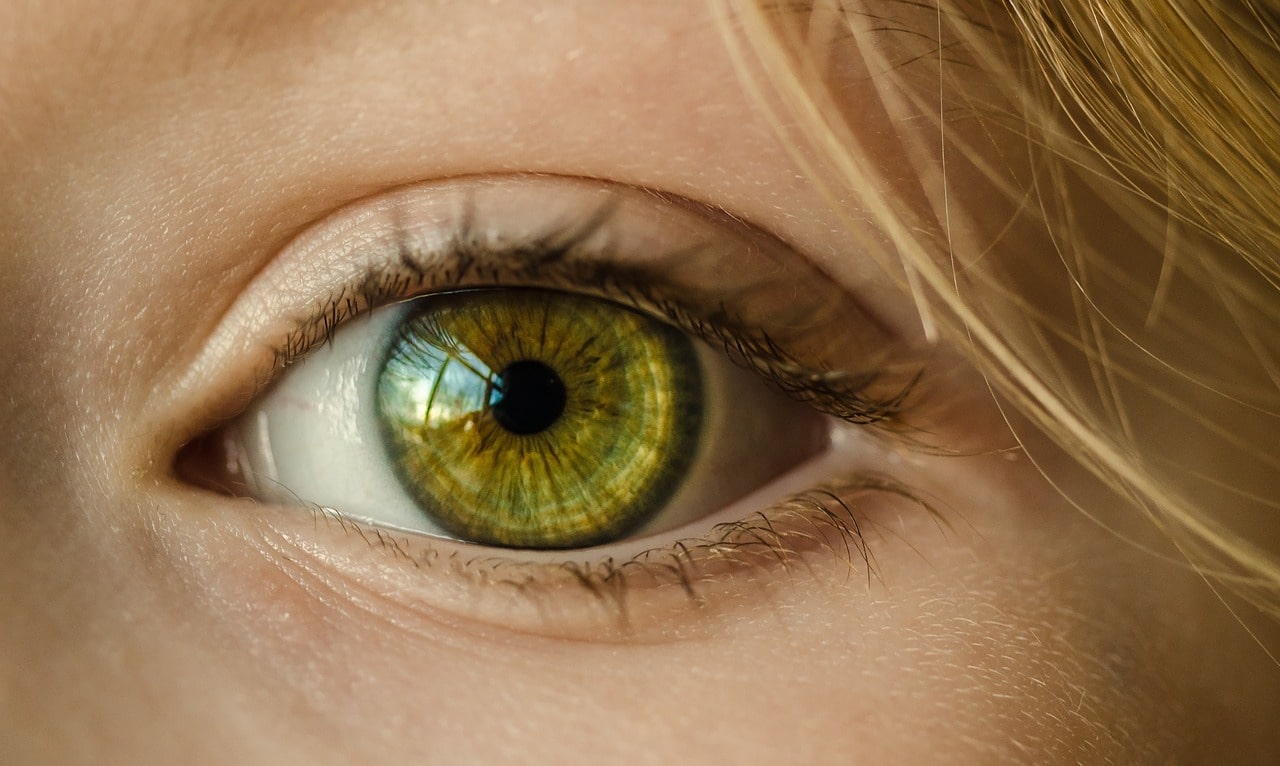
Dark circles under your eyes are the visible effect of blood vessels that darken when your body doesn’t get enough oxygen or moisture.
Not surprisingly, the eyes are the first to be affected: the skin under the eyes is fragile as it contains no fatty tissue.
Instead, you’ll find lots of blood vessels and lymph nodes there. If the body is not getting enough oxygen or fluid, the blood flows more slowly and is darker in colour.
These blood vessels are visible through the fine, almost transparent skin under the eyes. Depending on your skin type, the shadows under your eyes will be brownish or bluish.
Sometimes, dark circles are genetically determined.
In terms of lifestyle, there are a few things you can do to oppose dark circles under the eyes:
- Sleep longer and better;
- Drink plenty of water;
- Reduce caffeine;
- Exercise;
- Wear sunglasses on sunny days to reduce hyperpigmentation and prevent dark circles under the eyes;
- Give up cigarettes;
- Work to reduce stress levels.
How to oppose the fine lines under the eyes?
Over time, it is only natural for the skin around the eyes to change. One of the first signs of this process is slightly loose skin under the eyes and the appearance of small wrinkles.
Due to its delicate structure – with very few fat cells and a correspondingly smaller amount of collagen and elastin in the skin, wrinkles under the eyes can appear easily and quickly.
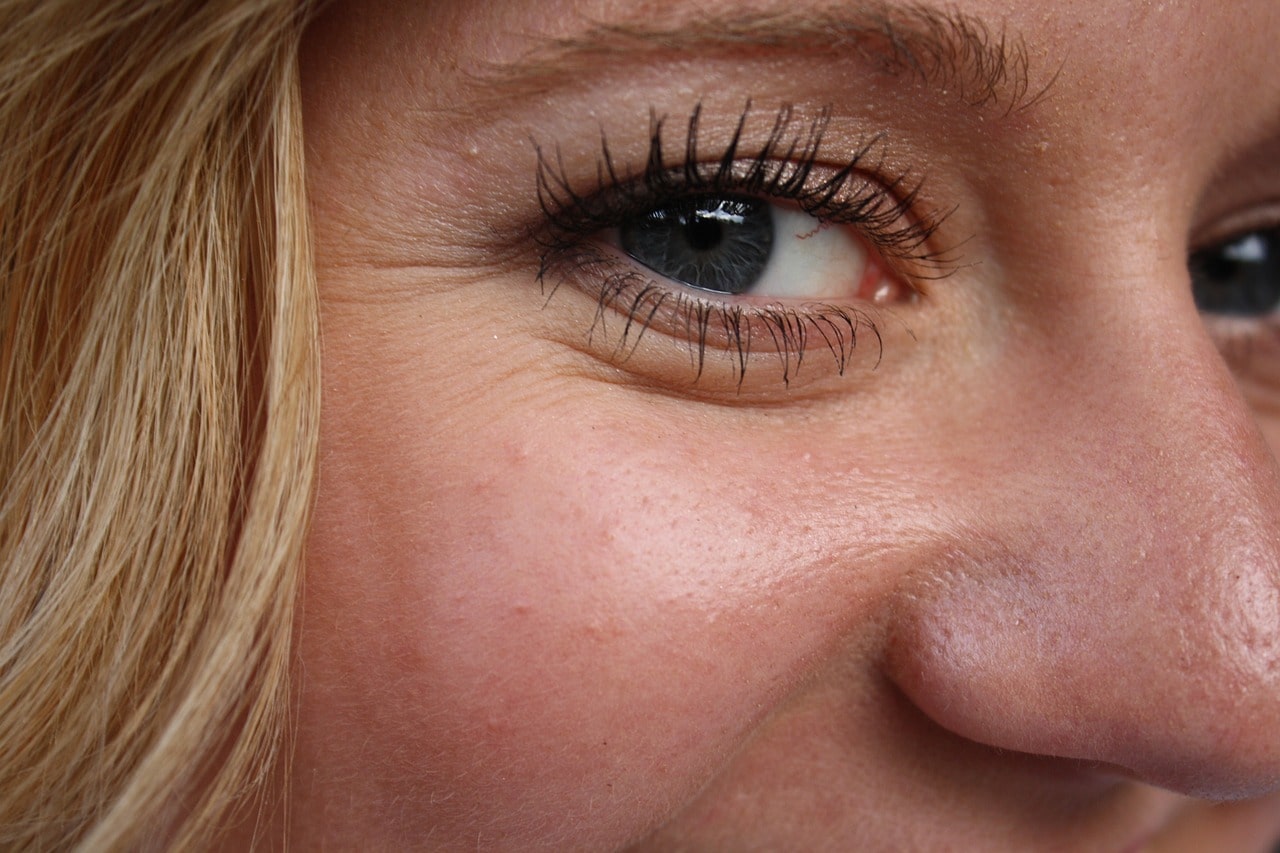
Bags and wrinkles under the eyes can also be caused by many other factors – external influences, bad habits, and genetics.
Improper skin care is a fairly common reason for the appearance of more new wrinkles in the eye area.
Overly drying products can lead to this problem because of the delicate area. If even the little natural protection of the skin is taken away with an inappropriate development, the drying of the skin immediately becomes noticeable and wrinkles form.
Depending on your skin type, you can choose moisturizers and serums with different anti-aging ingredients to help prevent wrinkles under your eyes.
You can search for elements such as
- Hyaluronic acid – to plump the skin and restore its moisture;
- Peptides – to help tighten sagging under-eye skin and reduce dark circles;
- Calcium – to strengthen the epidermis;
- Caffeine – to refresh and tone the area and reduce dark circles;
- Antioxidants – to protect against external influences, the damaging effects of free radicals and oxidative stress; they help keep skin protected and constantly renewed.
What about puffiness under the eyes?
Puffy eyes are a natural consequence of sleep deprivation or vice versa – too much sleep, alcohol consumption, too much salt, coffee and energy drinks, allergies, sinus problems, stress, inflammatory process or heredity.
For the skin around the eyes, you can for soothing ingredients like retinol, caffeine, vitamin C, and antioxidants.
Remember that retinol or antioxidants can be helpful, but if their concentration is too intense, it can break down the barrier and irritate the skin.
To avoid strong effects, gentle formulas should be sought. And when trying a new product, it is wise to wait a day or two to see how the skin reacts.
OK, we’ve been through some of the most common concerns around the eye area. Let’s see what you should know about applying moisturizer under the eyes.
What happens when you apply moisturizer under the eyes?
While some people avoid using moisturizer under the eyes due to concerns about irritation or clogged pores, there are potential benefits to doing so.
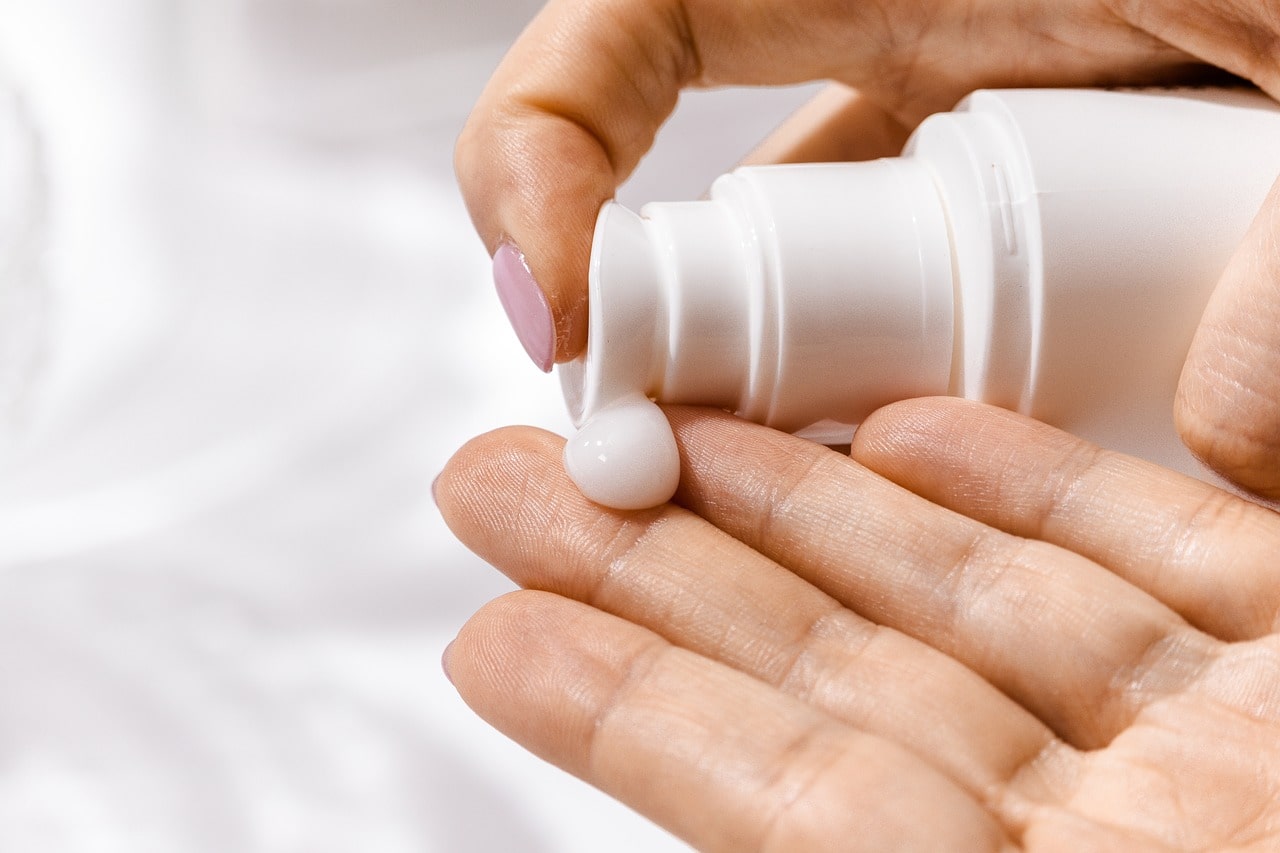
Moisturizing this area can help improve the skin’s elasticity, reduce the appearance of fine lines and wrinkles, and prevent dark circles and puffiness.
However, choosing a gentle and nourishing moisturizer (or one specifically designed for the delicate eye area) is essential.
Avoid using heavy creams or products with harsh ingredients that may irritate skin.
When applying moisturizer under the eyes, use gentle tapping motions with your ring finger to avoid tugging or pulling on the skin. Be careful not to get any product in your eyes.
There are some situations when it may be best to avoid applying moisturizer under the eyes, such as if you have an eye infection or allergies.
In these cases, it is best to consult with a dermatologist or healthcare professional for advice on caring for the delicate eye area.
Overall, while there are potential benefits to applying moisturizer under the eyes, it is vital to choose a gentle and nourishing product and be careful when using it to avoid irritation.
Let’s see if you should use a product specially designed for the skin area under the eyes.
What is the difference between an eye cream and a moisturizer?
Eye creams and moisturizers are used to hydrate the skin, but they could be formulated differently to address different skin care needs.
Eye creams are specifically designed for the delicate skin around the eyes. This area requires a more targeted approach than the rest of the face.
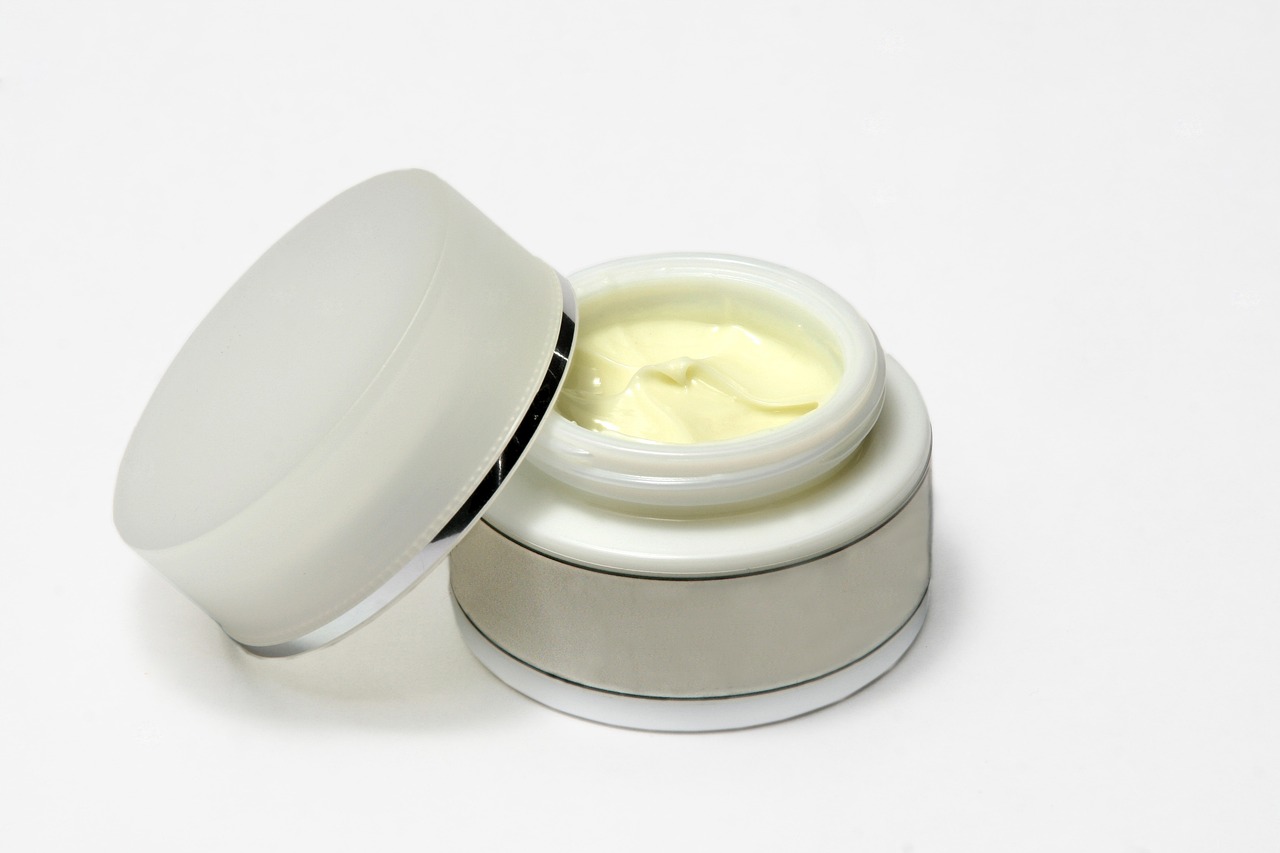
Eye creams are typically lighter in texture and contain ingredients that are gentle and nourishing, such as the above-mentioned hyaluronic acid, caffeine, and antioxidants.
They are also formulated to be non-irritating and non-comedogenic, as the skin around the eyes is more sensitive and can easily irritate.
On the other hand, мoisturizers are designed to hydrate and protect the skin all over the face.
They can vary in texture: from lightweight lotions to heavy creams and can contain various ingredients depending on the specific skincare concerns they are targeting.
Moisturizers may contain ingredients like ceramides, glycerin, or urea to help hydrate the skin and protect the skin barrier, as well as antioxidants and other active ingredients to address concerns like dullness or hyperpigmentation.
Your solution: if using moisturizer for your skin under the eyes, try to find a lightweight, water-based one that partially resembles the formula of eye cream.
When should you avoid applying moisturizer under the eyes?
While moisturizing the skin under the eyes can have many benefits, there are some situations when it may be best to avoid applying moisturizer in this area. Here are a few examples:
- Irritated or broken skin: If you have any cuts, abrasions, or other irritation on the skin under your eyes, it’s best to avoid applying moisturizer until the area has healed. Applying the product to irritated skin can exacerbate the problem and lead to infection;
- Eye infections: If you have an active eye infection, such as pink eye, it’s important to avoid applying any products, including moisturizer, in the eye area. This can help prevent the spread of infection and ensure proper healing;
- Allergic reactions: If you experience an allergic reaction to a moisturizer or other skincare product, it’s essential to stop using the product immediately and avoid applying it to the skin under your eyes. Allergic reactions can cause redness, itching, and swelling and may require medical attention;
- Active acne: If you have active acne on the skin under your eyes, it’s best to avoid applying moisturizer in this area. Moisturizers can potentially clog pores and exacerbate acne, leading to more breakouts.
If you have any concerns about applying moisturizer under your eyes, it’s a good idea to speak with a dermatologist or other skincare professional.
They can help you determine the best approach for your skin type and concerns.
Vitamins that may help your skin under the eyes
Vitamin C
The antioxidant vitamin C is considered one of the best vitamins for reducing under-eye puffiness and dark circles. It is an excellent solution because of its antioxidant properties.

Vitamin C contributes to the synthesis of collagen. Vitamin deficiency can lead to dark circles under the eyes and skin laxity.
Vitamins A and E
The combination of these vitamins works effectively on dark circles under the eyes.
Thanks to vitamin A, our skin is fresh and rejuvenated. It also promotes tissue repair and protects the skin from wrinkles, thinning and early aging thanks to its antioxidant properties.
B vitamins are great for reducing puffy eyelids and dark circles.
Final Thoughts
The skin under the eyes is specific and fragile. It might get dehydrated, fluffy, wrinkled or with dark circles.
But you can do something about it. You cannot change your genes, but you can improve your lifestyle, and in addition, you can use a moisturizer to take care of your skin in that specific area.
You have to find the right one, following the guidelines in this article.
Thank you for reading!
Valeria

